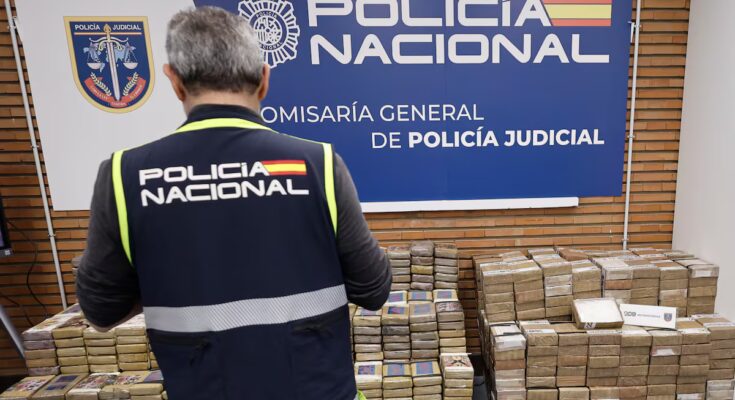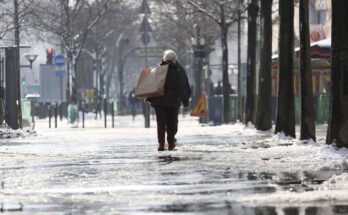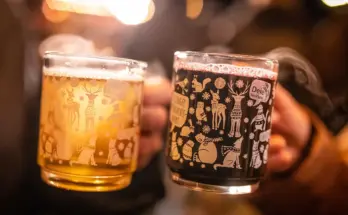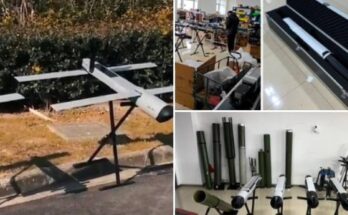Drug trafficking is a huge criminal vortex capable of going from one corner to another, scaling the walls and interiors of a society and getting stuck in its cracks until it contaminates everything. I am writing to ask that we too not allow ourselves to be contaminated by their language.
In an agreed place, a group of criminals collect criminal material to then resell it (stolen cars, forgeries, pedophile files…), what would you call that space? You’re probably thinking in terms like shop OR deposit. Well in many news stories it is called the warehouse where the drugs are accumulated nursery. It is the term that the drug traffickers themselves use, in code, to refer to that place. The media’s adoption of this crime voice helps to sustain a subconscious imagery that illegal substances are children who need specialized attention and care. Only thoughtlessness or humiliation have made us normalize that in recent years the news talks about the dismantling of these nurseries or the arrest of pointsthe way of calling paid spies who are stationed in a place to warn of the presence of state security forces and bodies.
I am neither surprised nor disgusted that this kind of lexicon exists. Nothing that is linguistic is irrelevant or of little interest to me. I know that it is a vocabulary inherited from those jargons of crime and marginality that were formed in Spanish from the Golden Ages until today: the so-called Germanía of the 16th century was the first of those documented languages. But what has always surprised me when reading the history of the criminal lexicon is the carelessness with which it was admired and exploited by society and also by intellectuals outside those environments. It is true that the criminal of early Germany was generally a chicken thief or a card cheat: the scoundrel of the golden age cannot but arouse pity in us, and the code words with which he called his crimes seemed to the readers of his time the legitimate attempt of a desperate man who did not want to be discovered.
When we talk about drug-related crime, we are obviously dealing with another magnitude. I only remember what is closest to me: in January this year, a drug traffickers’ boat crossed the Guadalquivir River through the capital Seville in broad daylight and passed in front of the stadium where the Spain-Turkey match was played this week; In the same month, in a town in Seville 50 kilometers from that stadium, drug traffickers confronted five national police officers, unleashing an AK-47 assault rifle placed on a tripod against them. They are not rascals, they are not crumbs from the garbage. Be careful not to provide the drug trafficker with the narrative of the rebel hero with its own lexicon.
Perhaps the journalist who uses these terms thinks that by using that language he proves himself to be more expert in his knowledge of the forms, evolution and leadership of this mafia vortex. But this vocabulary is ephemeral in its first area of use, and it only needs to be known socially to modify it again internally and anyone who continues to use it remains a neophyte. I remember that a few years ago we started hearing on the news that the Bushmen were being stopped, chased or warned. Bushman It is a demonym of Afrikaans, the variety of Dutch originating from South Africa where the name was coined among the colonists. boschjesmannthat is, “man of the forest” to name the indigenous populations, hunters and gatherers, on whom the European colonial authorities relied. By derivation, many European languages call Bushman the individual of the Contemporary Age who lives with habits considered primitive. Within the hierarchical structure of the drug business, the Bushmen (or cheaters: popular etymology makes the prospector’s hands visible) were those who collected the bales thrown from the sea by traffickers.
The Bushmen are not the Mediterranean scrub of the 21st century, the narcos’ nurseries are not treasure rooms where someone keeps their little furtive secret. When we say it overturns Instead of “gang robbery” we use the term with which one drug trafficker complains about another, as if it evokes an unscrupulous criminal who knowingly demolishes a patiently set up artisanal stall. This is not a mere linguistic issue: the lexicon helps us in representation. The vortex also goes from stream to stream, from sidewalk to sidewalk, and can reach businesses and institutions and contaminate them too. I’m sure that in places where drug trafficking money is laundered, it’s not said nurseriesneither of them bushmen neither of them points; Not a single word of that perverse narco-dictionary that some news stories try to teach us will sound.
This vocabulary contributes to a dangerous linguistic glamorization that legitimizes the internal workings of gangs, reinforces the symbolic authority of the drug trafficker, and focuses on only one part of the criminal chain. This is why, when I hear on the news someone say or write that a nursery has been dismantled or that stitches are being performed, I feel as if the murky vortex had been planted in front of my face and I seem to feel the cold and slimy belly of a toad on my palate.



